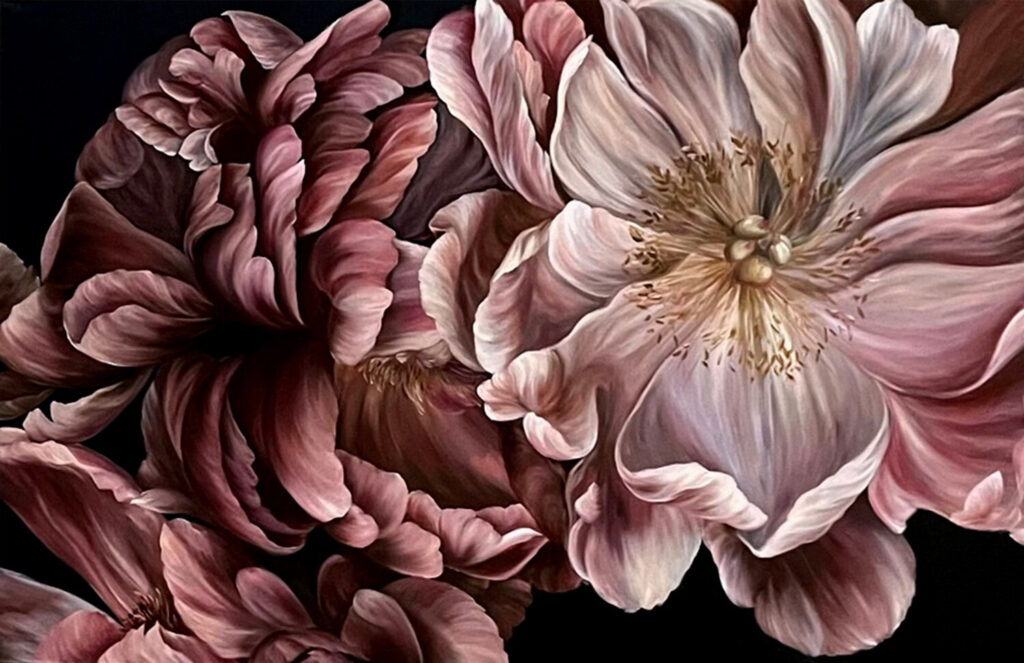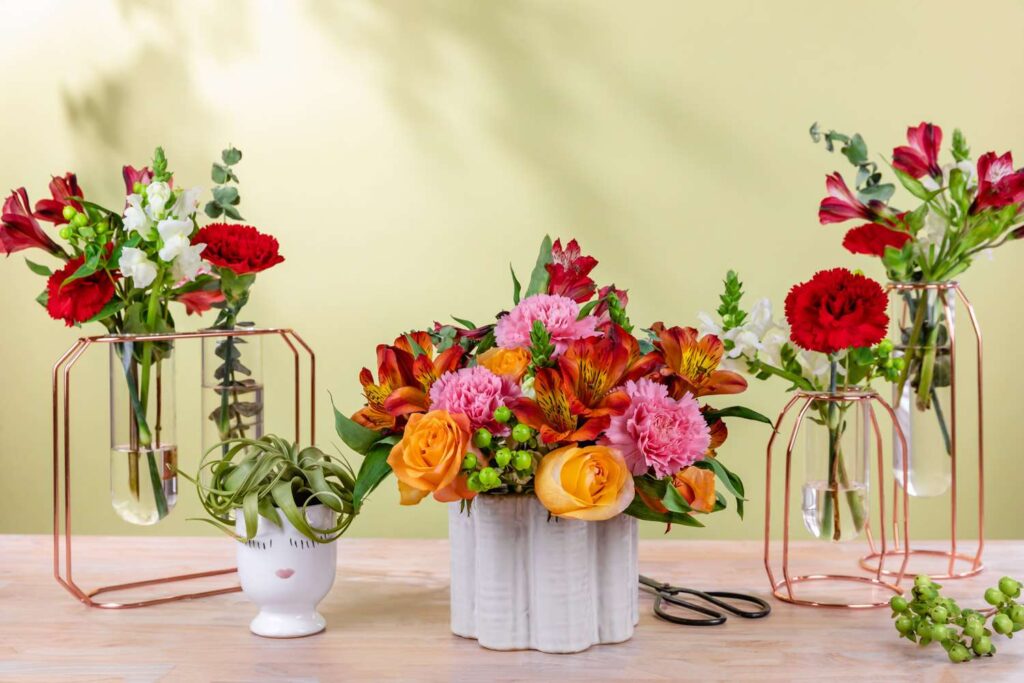Funeral flowers have long played an important role in honoring loved ones and providing comfort and support to grieving families. Understanding the tradition behind funeral flowers helps us appreciate their significance and the emotional impact they can have during difficult times.
Understanding the Tradition of Funeral Flowers
Funeral flowers have been used for centuries as a way to pay respect and honor the deceased. The tradition of adorning the casket and the funeral venue with funeral flowers delivered Sydney is deeply rooted in many cultures and religions.
These floral arrangements not only serve as a form of tribute but also provide comfort to the grieving family and friends. The presence of flowers at a funeral can create a peaceful and serene atmosphere, offering a sense of beauty and tranquility during a difficult time. Learn more about sympathy flowers.
The History of Funeral Flowers
The history of funeral flowers dates back to ancient times. In Egypt, for example, flowers were used to symbolize the cycle of life and death. They believed that flowers held a sacred meaning and could bring comfort and peace to the departed souls in their journey to the afterlife.
In the Victorian era, funeral flowers gained popularity as a way to express emotions and sentiments. The language of flowers, also known as floriography, allowed people to convey their feelings through different blooms and arrangements.
Throughout history, different cultures have incorporated funeral flowers into their burial practices as a way to honor and remember the deceased. From wreaths to bouquets, each floral arrangement holds a special significance and plays a vital role in the mourning process.
Symbolism of Different Funeral Flowers
Each flower carries its own symbolism and meaning when it comes to funerals. Lilies, for instance, are commonly associated with purity and the resurrection of the soul. Roses, on the other hand, symbolize love, while chrysanthemums represent honoring the departed.
Understanding the symbolism behind different funeral flowers can help in choosing the appropriate blooms that reflect the personality and spirit of the loved one being mourned.
When selecting funeral flowers, it is essential to consider the cultural and religious beliefs of the deceased and their family. Different cultures have varying traditions and preferences when it comes to floral arrangements for funerals. By respecting these customs, you can ensure that the flowers chosen are not only beautiful but also meaningful and appropriate.
The Emotional Impact of Funeral Flowers
Funeral flowers not only provide comfort to grieving families but also serve as a powerful tool for emotional expression during times of loss. They have the ability to convey unspoken words and offer solace when words fail.
During a funeral service, the presence of floral arrangements goes beyond mere decoration. The carefully selected blooms symbolize the cycle of life and the beauty that remains even in moments of sorrow. Each petal and stem is thoughtfully chosen to represent the unique personality and essence of the departed, creating a poignant tribute that honors their memory.
Providing Comfort through Floral Arrangements
The presence of beautiful blooms can create a calming atmosphere and provide a sense of peace during funerals. Their serene beauty and delicate fragrance can comfort grieving families and remind them of the beauty that still exists amidst the sadness.
Moreover, floral arrangements help create a visual tribute to the departed, serving as a reminder of their impact and legacy. The vibrant colors and intricate designs can bring moments of joy and celebration, even in the midst of sorrow.
Funeral flowers are not just a gesture of sympathy; they are a symbol of hope and renewal. As the blooms wither and fade, they represent the transient nature of life and the importance of cherishing every moment. The act of receiving and arranging flowers can be a therapeutic process for the bereaved, offering a tangible connection to the natural world and a source of solace in a time of profound loss.
Expressing Grief and Support with Flowers
Funeral flowers also allow friends and family members to express their condolences and support to the grieving family. Each bloom represents a heartfelt sentiment, conveying messages of sympathy, love, and remembrance.
By sending funeral flowers, individuals can show their support and provide a tangible symbol of their presence during this difficult time. The act of sending flowers demonstrates empathy and serves as a way to offer comfort from afar.

Choosing the Right Funeral Flowers
Selecting the right funeral flowers can be a thoughtful and meaningful process. Considering certain factors and understanding the symbolic meanings of different blooms can help in choosing arrangements that honor the loved one being mourned.
Funeral flowers play a significant role in paying tribute to the deceased and offering comfort to the bereaved. They serve as a visual representation of love, respect, and sympathy during a time of loss and mourning. The careful selection of funeral flowers can provide solace and support to those grieving the departed.
Factors to Consider When Selecting Funeral Flowers
When choosing funeral flowers, it is important to consider factors such as the personality of the departed, their cultural background, and the preferences of the grieving family. Taking these aspects into account ensures that the chosen flowers carry personal significance and resonate with the mourning process.
Additionally, considering the favorite flowers or colors of the deceased can add a personal touch to the floral arrangements. Incorporating blooms that held special meaning to the departed individual can create a more personalized tribute that celebrates their life and legacy.
Popular Choices of Funeral Flowers and Their Meanings
Popular choices of funeral flowers include lilies, roses, carnations, and chrysanthemums. Lilies symbolize purity and innocence, roses represent love and beauty, carnations convey admiration and remembrance, while chrysanthemums signify honor and respect.
Each flower carries its own unique symbolism and significance, allowing individuals to express their emotions and sentiments through the language of flowers. Choosing a combination of these flowers or incorporating other meaningful blooms creates a personalized and meaningful funeral flower arrangement.
The Role of Funeral Flowers in Different Cultures
Funeral flower traditions vary across different cultures, reflecting the diverse ways in which individuals express their respect and honor for the departed.
Funeral Flower Traditions Around the World
In Asian cultures, white flowers, particularly white chrysanthemums, are commonly used during funerals as a symbol of mourning. In contrast, in some Latin American cultures, bright and colorful flowers are used to celebrate the life of the departed.
Similarly, in European cultures, lilies are often associated with funerals, symbolizing the restored innocence of the soul of the departed. In African traditions, certain tribes use specific flowers with symbolic meanings to honor their loved ones during funerals.
Understanding the cultural traditions surrounding funeral flowers can help individuals respect and participate in these practices when attending funerals from different backgrounds.
Respect and Honour in Cultural Practices
In many cultures, funeral flowers play a crucial role in honoring and showing respect to the deceased. Offering flowers at the funeral is seen as a gesture of reverence and a way to pay homage to the life lived.
Moreover, in some cultures, the type and color of flowers hold significant meaning. For example, in Japanese culture, white flowers symbolize purity and rebirth, while red flowers are avoided as they represent happiness. These nuances highlight the importance of understanding the symbolism behind the choice of funeral flowers.
Respecting and understanding these cultural practices is essential in ensuring that the funeral flowers serve their intended purpose and provide comfort to the grieving family.

How to Arrange Funeral Flowers
Arranging funeral flowers requires careful thought and consideration. Following some basic guidelines can help create meaningful floral arrangements that convey the desired message of sympathy and support.
Basic Guidelines for Funeral Flower Arrangements
When arranging funeral flowers, it is important to choose appropriate colors and styles that reflect the personality and preferences of the loved one being mourned. Opting for elegant and soothing colors, such as whites, blues, or pastels, can create a calming and respectful atmosphere.
Additionally, incorporating personalized elements, such as favorite flowers or symbolic objects, can add a touch of individuality and serve as a lasting tribute to the departed.
Conveying Your Message through Flower Arrangements
The way in which funeral flowers are arranged can also convey specific messages. For example, wreaths symbolize eternity and continuity, while bouquets represent love and remembrance. Cross-shaped arrangements, on the other hand, hold religious significance and offer prayers for the departed.
Considering the message that the floral arrangement conveys can help in choosing the appropriate style and design to honor the loved one’s memory.
Funeral flowers play a significant role in providing comfort, expressing emotions, and honoring loved ones who have passed away. Understanding the tradition and symbolism of funeral flowers, as well as considering cultural practices and personal preferences, ensures that these arrangements serve their intended purpose – offering solace and support during times of grief.
Furthermore, it is important to consider the size and shape of the floral arrangement. Larger arrangements, such as standing sprays or casket sprays, are often chosen to adorn the funeral service venue. These grand displays can create a sense of reverence and pay homage to the life of the deceased.
On the other hand, smaller arrangements, such as table centerpieces or sympathy baskets, are commonly sent to the family’s home as a gesture of support. These intimate arrangements provide a comforting presence during the mourning period and serve as a reminder that the community is there to offer solace.
When selecting the flowers for a funeral arrangement, it is essential to consider their meanings and symbolism. Lilies, for instance, are often associated with purity and the restoration of innocence. Roses, on the other hand, symbolize love and beauty. By incorporating flowers with significant meanings, the arrangement can convey heartfelt emotions and add depth to the overall tribute.

Leave a Reply